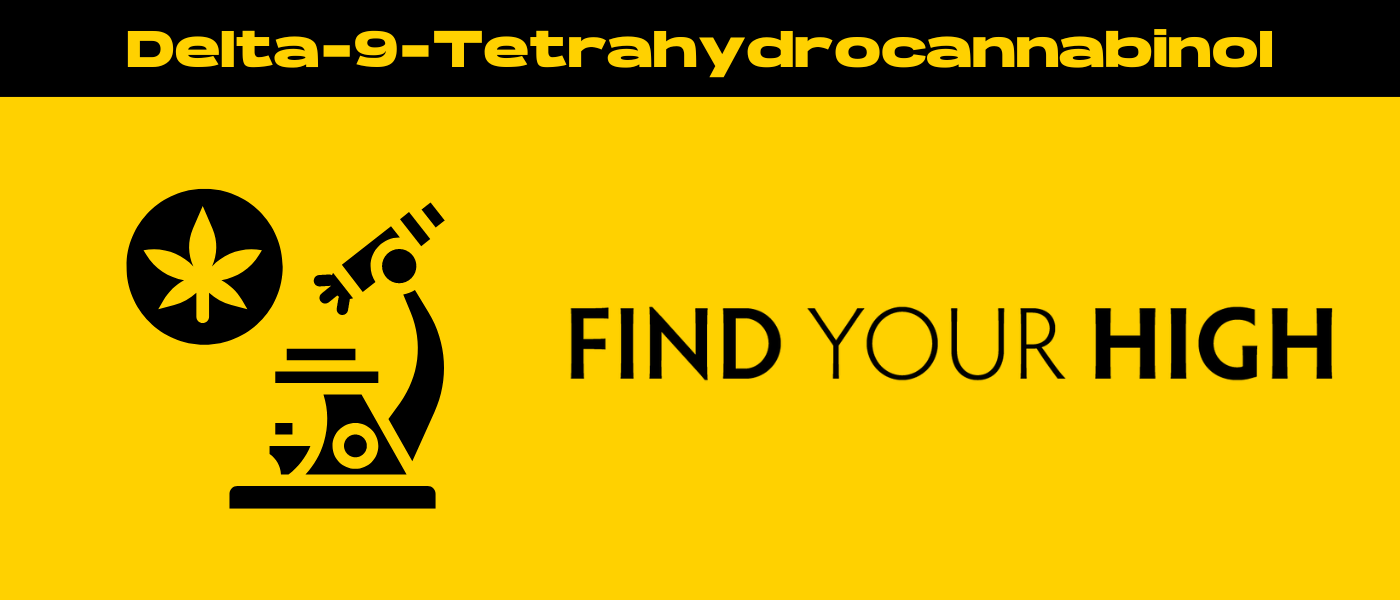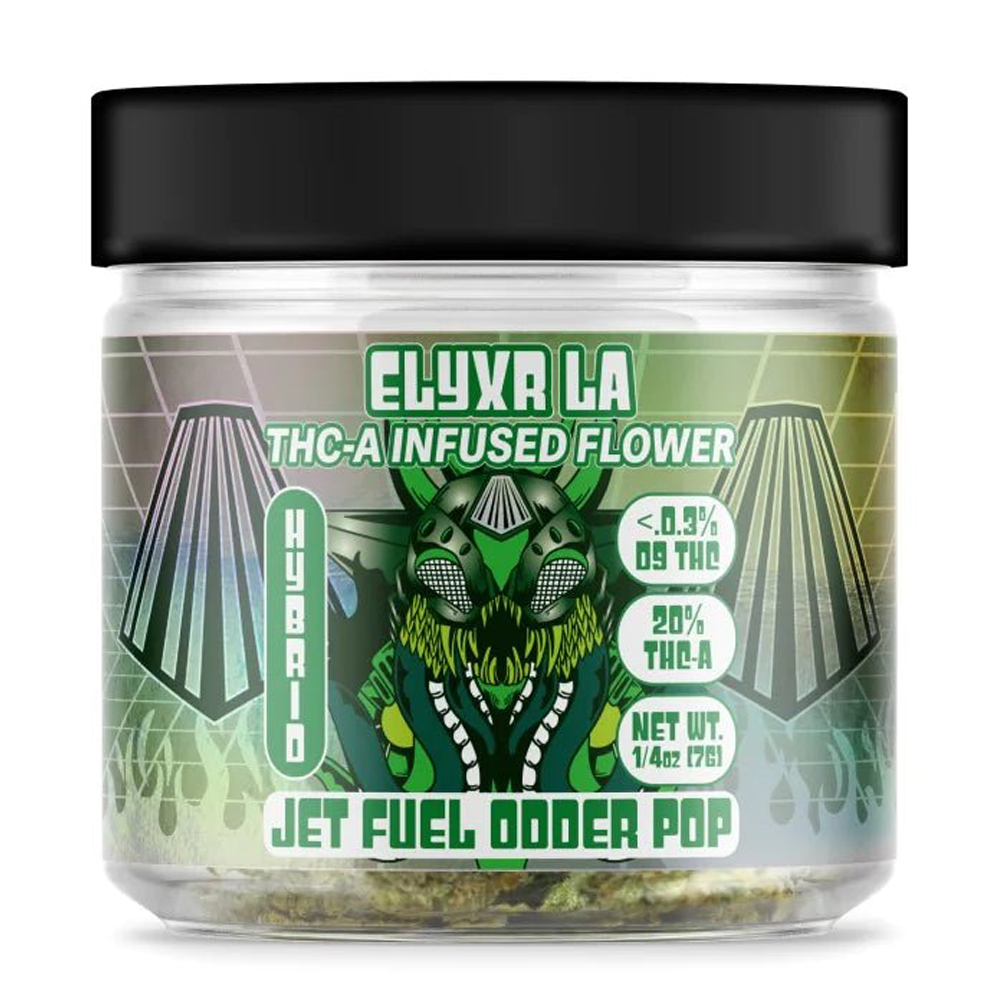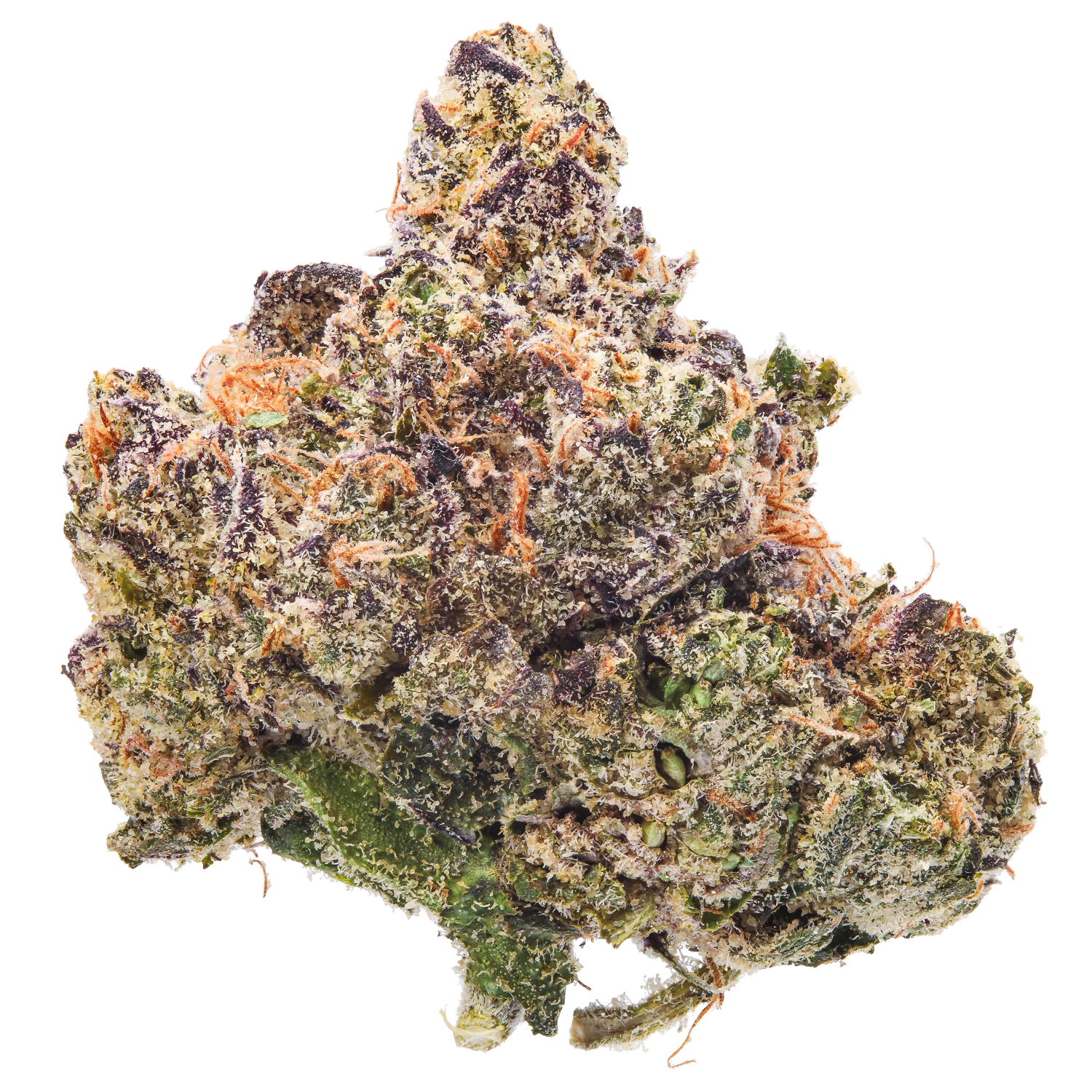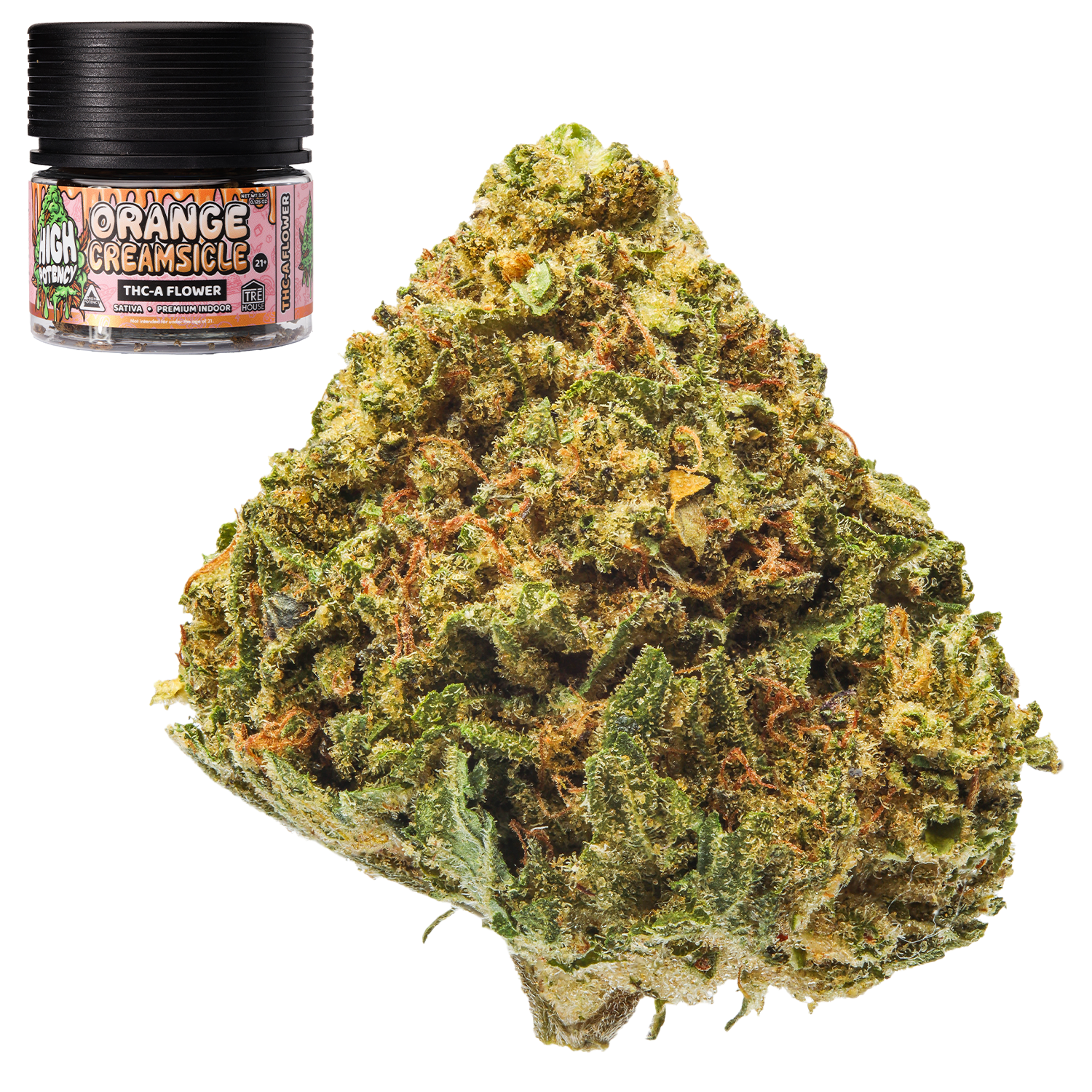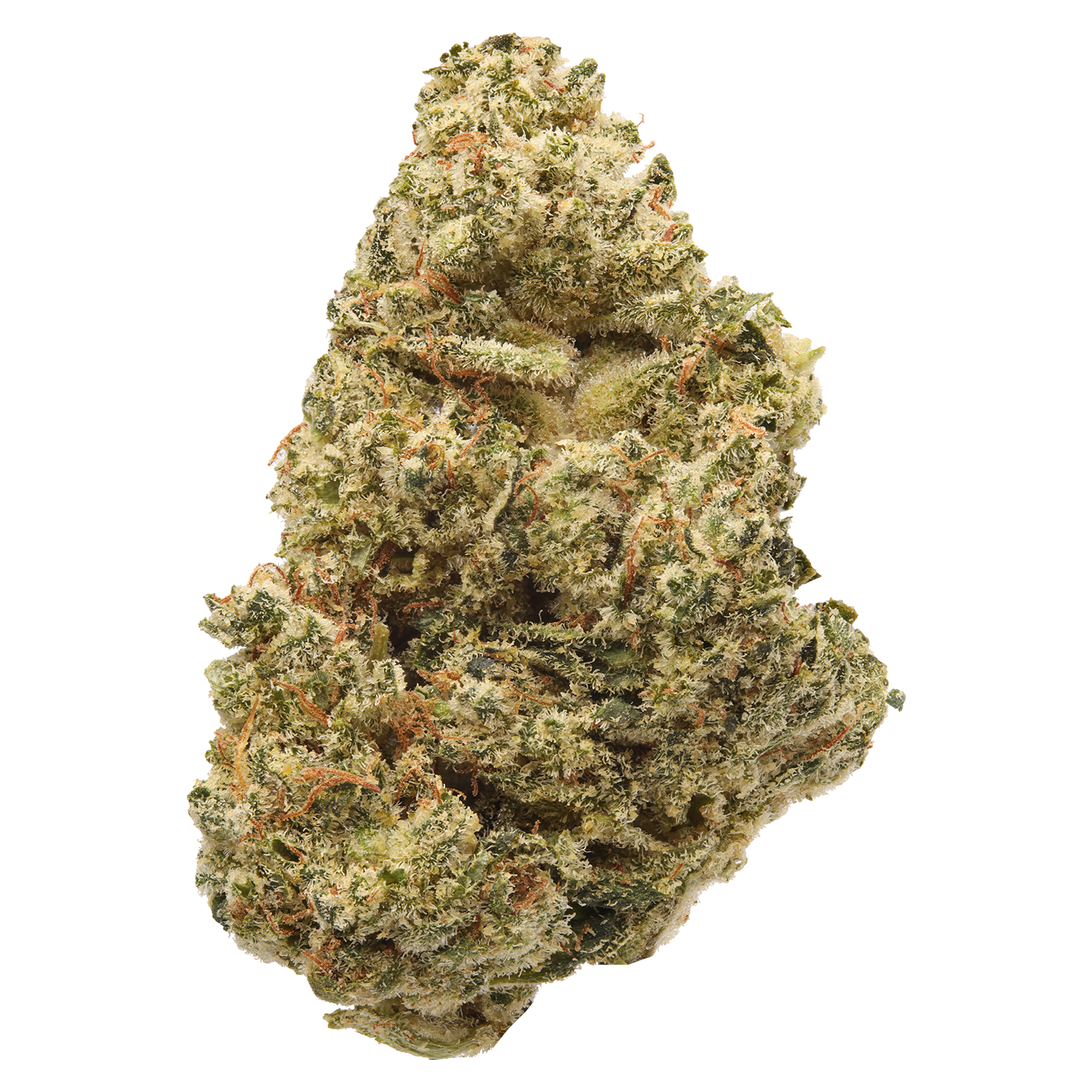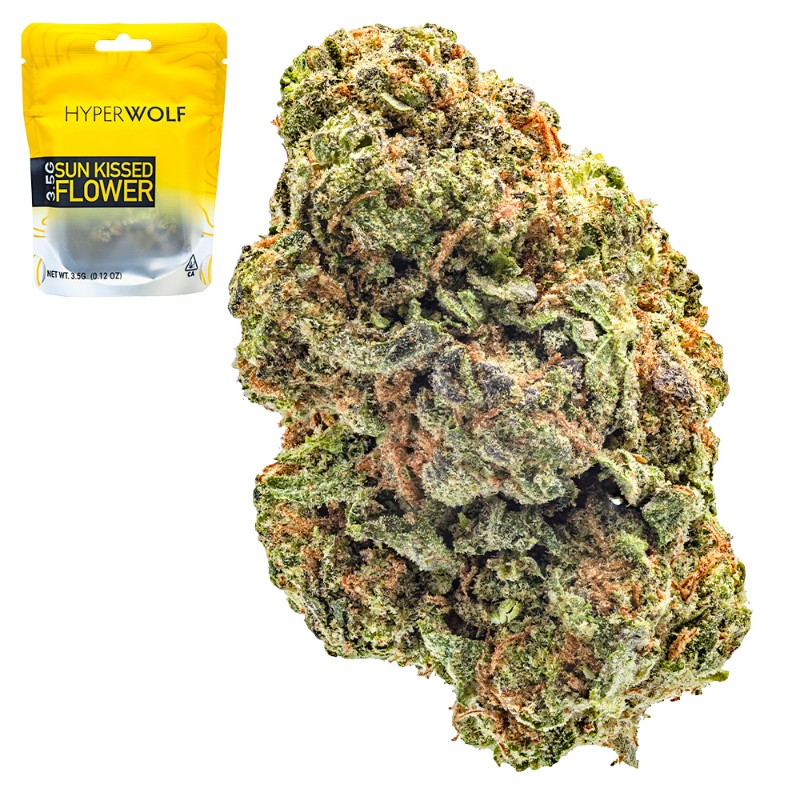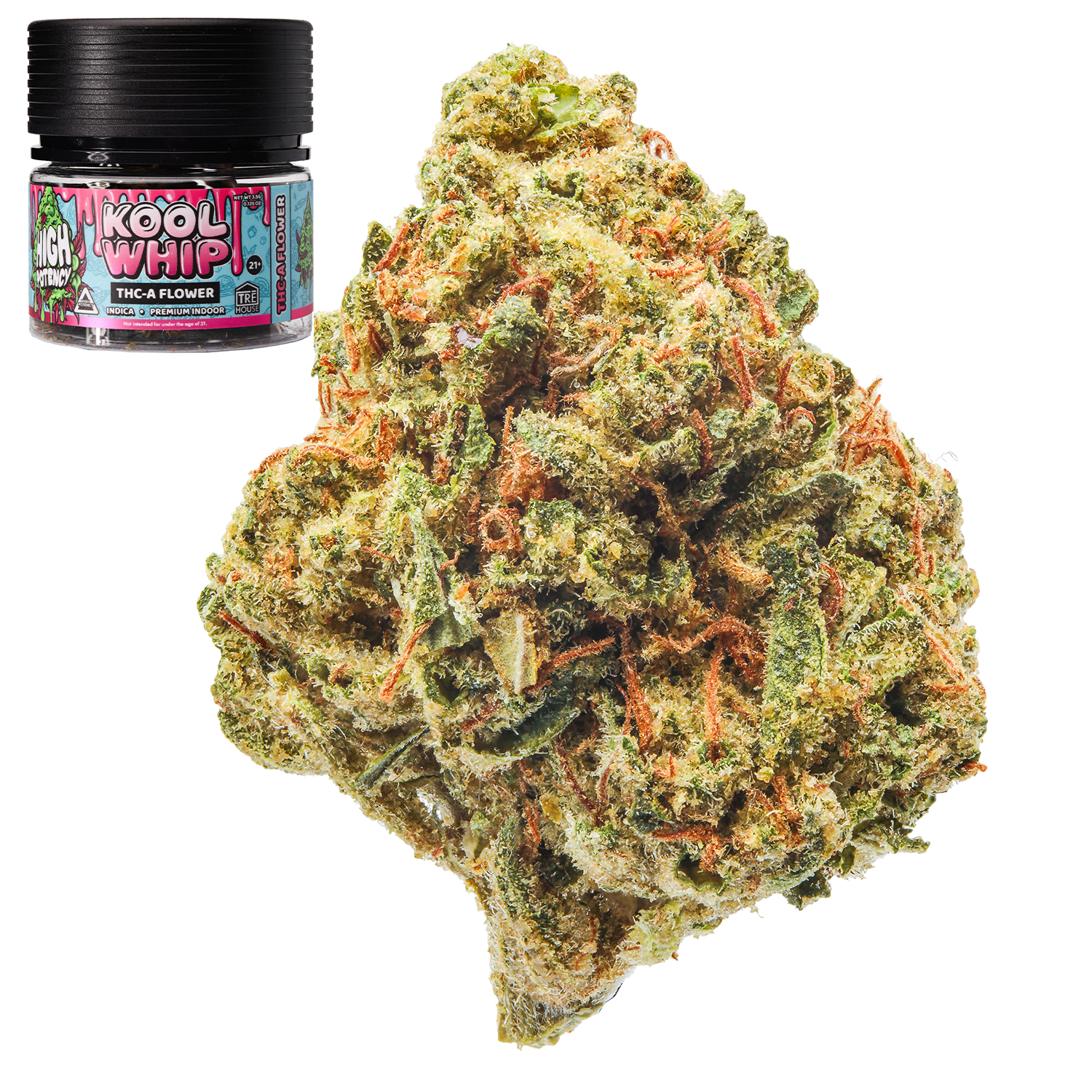Delta-9-Tetrahydrocannabinol, better known as Delta-9 THC, is the most well-known and widely studied cannabinoid in the cannabis plant. It’s the compound largely responsible for the psychoactive “high” that the plant cannabis sativa is famous for, and chances are, if you’ve ever felt euphoric, giggly, or just straight-up relaxed after consuming weed, Delta-9 THC was playing the lead role.
Naturally occurring in both marijuana and hemp plants, Delta-9 THC is synthesized in the cannabis flower’s resin glands. It starts off as THCA (tetrahydrocannabinolic acid), which is non-psychoactive until it undergoes a process called decarboxylation—usually triggered by heat. This transformation allows Delta-9 to bind with receptors in your body and mind, creating the intoxicating effects smoking cannabis is known for.
While most people associate Delta-9 THC with recreational weed, it’s also used in clinical and therapeutic settings. And while there’s a growing roster of THC analogs (like Delta-8 and Delta-10), Delta-9 still reigns supreme when it comes to potency and popularity.
How Delta-9 THC Works in the Body
The magic of Delta-9 THC lies in its interaction with your body’s endocannabinoid system (ECS)—a complex network of receptors, enzymes, and endocannabinoids that help regulate everything from mood and appetite to pain perception and memory. The ECS is sort of like your body’s built-in equilibrium manager, working behind the scenes to maintain balance, or “homeostasis.”
Delta-9 THC primarily binds to CB1 receptors, which are heavily concentrated in the brain and central nervous system. When it locks into these receptors, it alters neurotransmitter activity—especially dopamine and serotonin—leading to those signature psychoactive effects like euphoria, giggles, and the munchies.
It also interacts to a lesser degree with CB2 receptors, which are more abundant in the immune system and peripheral tissues. This is part of the reason Delta-9 THC can also play a role in reducing inflammation and pain.
In short, Delta-9 THC doesn’t just pass through your body unnoticed. It locks into key systems, rewires your neurotransmitters temporarily, and sparks a cascade of physical and mental responses—some you may seek out, and others you might not expect.
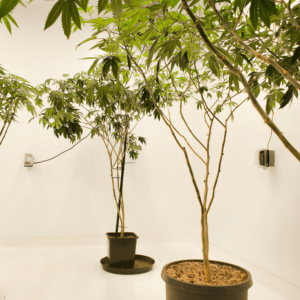
The Effects of Delta-9 THC: What to Expect
Ask five people what Delta-9 THC feels like, and you’ll likely get five different answers. But there are some commonly reported effects that help paint the bigger picture.
Psychoactive effects typically kick in first. Expect feelings of euphoria, relaxation, heightened sensory perception (yes, snacks taste better and music hits different), and sometimes increased creativity. That said, the experience can vary greatly depending on dosage, tolerance, strain, and setting.
Short-term physical effects may include:
- Dry mouth (a.k.a. cottonmouth)
- Red or bloodshot eyes
- Increased appetite (hello, munchies)
- Elevated heart rate
Cognitive and emotional effects can swing both ways. While many users report enhanced focus, introspection, and improved mood, others—especially at higher doses—might experience anxiety, paranoia, or impaired memory and coordination.
Factors like how much you consume, how you consume it (smoking vs. edibles), your environment, and your individual biochemistry all influence how Delta-9 THC hits you. As with anything mind-altering, starting low and going slow is a good rule of thumb.
Therapeutic Potential: Medical Uses of Delta-9 THC
Beyond the high, Delta-9 THC has earned its spot in the medical world for a variety of therapeutic uses. In fact, it’s been used for decades to treat symptoms related to chronic illness, especially when other medications fall short.
Here are some of its most well-documented medical applications:
- Pain relief: Delta-9 THC has analgesic properties that can ease both acute and chronic pain. It’s especially helpful for neuropathic pain that doesn’t always respond to conventional painkillers.
- Nausea and vomiting: It’s a go-to for cancer patients undergoing chemotherapy, helping reduce nausea and stimulate appetite.
- Appetite stimulation: Patients with HIV/AIDS, eating disorders, or undergoing severe medical treatment often struggle with appetite loss, which Delta-9 can help reverse.
- Sleep support: For individuals dealing with insomnia, PTSD-related nightmares, or general restlessness, Delta-9 can promote better sleep quality.
- Muscle relaxation: Delta-9’s interaction with the ECS can help reduce muscle spasms, making it beneficial for multiple sclerosis and spinal cord injury patients.
One FDA-approved medication that contains synthetic Delta-9 THC is Marinol (dronabinol), used to treat nausea and appetite loss. While not as effective or fast-acting as natural cannabis, it proves that THC has legitimate pharmaceutical value.
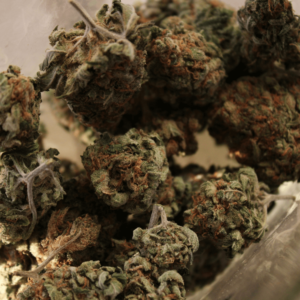
Delta-9 THC vs. CBD: What’s the Difference?
Cannabidiol (CBD) and Delta-9 THC are essentially cannabis’ yin and yang. They’re both cannabinoids, but they affect the body and brain in very different ways.
The biggest difference? Delta-9 THC is psychoactive; CBD is not. While THC binds directly to CB1 receptors and produces a noticeable “high,” CBD takes a more subtle approach. It doesn’t bind directly to either CB1 or CB2 receptors and instead modulates the ECS more indirectly, promoting balance without intoxication.
CBD may help offset some of THC’s less desirable effects, like anxiety or paranoia, when the two are taken together. This synergistic relationship is part of the “entourage effect,” a theory suggesting that cannabinoids work better together than they do alone.
When it comes to therapeutic benefits, both cannabinoids shine—but in different areas. THC is more effective for nausea and pain, while CBD tends to be favored for anxiety, inflammation, and seizure control.
Delta-9 THC vs. Delta-8 and Delta-10: A Cannabinoid Comparison
Delta-8 and Delta-10 THC have risen in popularity as legal alternatives to Delta-9, especially in states with strict cannabis laws. Chemically, they’re almost identical to Delta-9, but the slight difference in molecular structure leads to a noticeable shift in effects.
- Delta-8 THC is considered a “milder” version of Delta-9. It produces a more clear-headed and calming experience, often with reduced anxiety or paranoia. Many people describe it as “diet weed.”
- Delta-10 THC is even less common but is said to produce a more uplifting, energizing high—ideal for daytime use.
In terms of legality, Delta-8 and Delta-10 are often derived from hemp, which made them temporarily legal under the 2018 Farm Bill (otherwise known as the Agriculture Improvement Act) in many places. However, some states are starting to crack down, so legality can be murky.
For those seeking the classic, full-bodied medical cannabis experience, Delta-9 is still the strongest and most effective option.
Is Delta-9 THC Legal? A State-by-State Breakdown
Legality is one of the most complex aspects of Delta-9 THC. Federally, Delta-9 THC derived from marijuana remains a Schedule I controlled substance, meaning it’s illegal under federal law. However, the 2018 Farm Bill made hemp-derived cannabinoids legal—as long as they contain no more than 0.3% Delta-9 THC by dry weight.
This loophole opened the door for hemp-derived Delta-9 edibles, which can legally contain psychoactive doses as long as they stay within that 0.3% limit. For example, a 5-gram gummy can legally have 15mg of Delta-9 THC if it meets the weight ratio requirement.
Cannabis legality by state varies widely:
- Fully legal: California, Colorado, Oregon, Washington, etc.
- Medical use only: Florida, Pennsylvania, Ohio, etc.
- Illegal: Idaho, Kansas, South Carolina, etc.
Always check your local laws, especially when purchasing Delta-9 THC products online or crossing state lines.
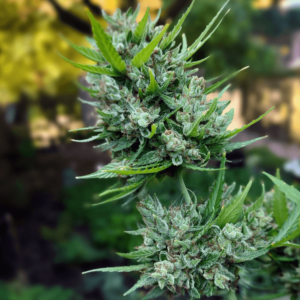
How Long Does Delta-9 THC Stay in Your System?
If you’ve got an illicit drug test on the horizon, knowing how long Delta-9 THC lingers is crucial. The answer isn’t one-size-fits-all—it depends on how often you use, how much you consume, your metabolism, and the type of test being administered.
Similar to other drugs, delta-9 THC is fat-soluble, meaning it’s stored in your body’s fat cells and released slowly over time. This makes it detectable long after the high has worn off.
Estimated detection windows:
- Urine test: 3 to 30+ days
- Blood test: 1 to 2 days (or longer for frequent users)
- Saliva test: Up to 24 hours
- Hair test: Up to 90 days
Frequent users will retain THC longer than occasional consumers. Hydration, exercise, and metabolism also affect how quickly your body flushes it out.
How Delta-9 THC is Made or Extracted
Delta-9 THC is produced naturally by cannabis plants in the form of THCA, which converts into Delta-9 when exposed to heat—a process known as decarboxylation. But when it comes to commercial products, especially hemp-derived ones, a more refined extraction process is required.
Common extraction methods include:
- CO2 extraction: Clean, efficient, and safe; ideal for preserving cannabinoids and terpenes.
- Ethanol extraction: Effective for large-scale production, though it may require post-processing to remove residual solvents.
- Hydrocarbon extraction (butane or propane): Common in concentrate production but needs strict safety protocols.
Once extracted, Delta-9 can be infused into oils, edibles, and other delivery systems. Hemp-derived Delta-9 is made by formulating the compound into high-weight products like gummies to meet legal THC limits.
Types of Delta-9 THC Products on the Market
There’s no shortage of ways to enjoy Delta-9 THC these days. Whether you’re a traditionalist or a gummy fan, the market has something for every type of consumer.
Popular product categories include:
- Edibles: Gummies, chocolates, drinks, baked goods—known for longer-lasting effects and strong body highs.
- Vapes: Disposable pens and cartridges offer fast-acting effects and are easy to dose.
- Flower: Still one of the most popular ways to consume; ideal for those who prefer immediate results and full-spectrum experiences.
- Tinctures: Sublingual drops that allow for more controlled dosing.
- Topicals: Lotions and balms with Delta-9 THC are less common but offer localized relief without the high.
Each form offers unique onset times, durations, and intensities, so choosing the right one depends on your goals and preferences.
Dosage Guidelines: How Much Delta-9 THC Should You Take?
Dosing Delta-9 THC isn’t an exact science, but there are general guidelines to help you find your sweet spot. The key is to start low and go slow, especially if you’re new to cannabis.
General dosing tiers:
- Microdose: 1–2mg – subtle effects; good for creativity or focus
- Low dose: 2.5–5mg – mild euphoria and relaxation
- Moderate dose: 5–15mg – standard recreational use
- High dose: 20mg+ – intense psychoactive experience; caution recommended
Delivery method matters. Smoking or vaping kicks in quickly (within minutes) and wears off in a couple of hours. Edibles take longer to activate (30–90 minutes) but can last up to 6–8 hours.
Tolerance, metabolism, and even what you ate for lunch can affect how your body handles THC. When in doubt, take a smaller dose and wait to assess the effects.
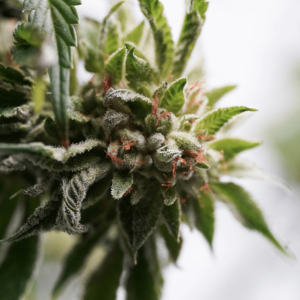
Side Effects and Risks of Delta-9 THC
Delta-9 THC isn’t risk-free, especially when overconsumed or used irresponsibly. While most side effects are temporary and non-lethal, they can be uncomfortable.
Common side effects include:
- Dry mouth
- Red eyes
- Increased heart rate
- Drowsiness
- Impaired memory or concentration
Some users may experience anxiety, paranoia, or panic attacks, particularly at higher doses or when taken in a stressful environment. These psychological effects are more common in people with a predisposition to anxiety or mental health disorders.
Long-term, heavy use can potentially lead to Cannabis Use Disorder (CUD) or tolerance buildup, requiring more THC to achieve the same effects. Moderation is key.
Can You Overdose on Delta-9 THC?
Here’s the good news: You can’t fatally overdose on Delta-9 THC. But you can take more than your body is comfortable handling, which can result in a bad trip.
Symptoms of too much THC:
- Intense paranoia or anxiety
- Nausea or vomiting
- Confusion or disorientation
- Increased heart rate
- Extreme drowsiness or “couch lock”
If you or someone else takes too much, the best course of action is to stay calm, hydrate, and rest in a safe, quiet environment. CBD may also help counteract THC’s effects.
Delta-9 THC and Drug Testing: Will You Fail a Test?
In short: Yes, you’ll likely fail a drug test if you’ve consumed Delta-9 THC—whether it’s hemp-derived or not.
Most drug tests are designed to detect THC metabolites, particularly THC-COOH, which is produced after your body breaks down Delta-9. Even trace amounts can show up on standard urine tests.
Detection windows vary but can last from a few days to several weeks depending on:
- Frequency of use
- Dosage
- Body fat percentage
- Type of test
If you’re subject to regular testing, steer clear of all THC products—including legal Delta-9 options.
Buying Delta-9 THC Safely: What to Look For
With the explosion of legal cannabis products and hemp-derived products, not all Delta-9 THC is created equal. Some are high-quality, lab-tested, and effective; others… not so much.
To buy safely, look for:
- Third-party lab testing – COAs (Certificates of Analysis) should be easy to find and verify.
- Clear labeling – Know how much THC you’re getting per serving.
- Established brands – Stick with companies that have solid reputations and transparent sourcing.
- Avoid sketchy gas station products – If it seems too cheap or shady, it probably is.
Quality matters—especially when it comes to your body and mind.

Final Thoughts: Is Delta-9 THC Right for You?
Delta-9 THC is a powerful, fascinating compound with both recreational and therapeutic value. Whether you’re exploring it for the high, the healing, or just plain curiosity, understanding how it works, what it does, and how to use it responsibly is key.
Is it right for you? That depends. If you’re new, proceed with caution. If you’re a veteran, keep your tolerance in check. And if you’re somewhere in between, welcome to the wild, wonderful world of Delta-9.
Just remember—start low, go slow, and always know what you’re taking. The high is fun, but knowledge is power.
Frequently Asked Questions
1. What does delta-9 tetrahydrocannabinol do?
Delta-9 Tetrahydrocannabinol (Delta-9 THC) is the main psychoactive compound in cannabis. It binds to cannabinoid receptors in your brain, triggering a range of effects—most notably a euphoric high. Depending on the dose and individual tolerance, Delta-9 can enhance mood, boost creativity, stimulate appetite (a.k.a. the munchies), and help with sleep or pain. On the flip side, too much can cause anxiety, paranoia, or couch lock. Beyond the buzz, it also has therapeutic potential for things like nausea, chronic pain, and appetite loss.
2. What is delta-9 and why is it illegal?
Delta-9 is short for Delta-9 THC, the most well-known cannabinoid responsible for the “high” you feel from cannabis. It’s considered illegal under U.S. federal law when derived from marijuana, due to its classification as a Schedule I controlled substance. That said, Delta-9 derived from hemp (and limited to 0.3% by dry weight) is legal under the 2018 Farm Bill. So while weed-derived Delta-9 is federally restricted, hemp-derived Delta-9 products—like gummies and edibles—can be legal, depending on your state. State laws vary wildly, so always double-check your local regulations.
3. Does delta-9 show on a drug test?
Yes, Delta-9 THC will almost definitely show up on a standard drug test. Whether it’s hemp-derived or marijuana-derived, once it’s in your system, your body breaks it down into metabolites that drug tests are specifically designed to detect—especially THC-COOH, the most common one tested for. How long it stays in your system depends on how often you use, how much you take, and your metabolism, but detection windows can range from a few days to over a month, especially in urine tests. So if you’re getting tested, it’s best to steer clear.
4. Is delta-9 stronger than delta-8?
Yes—Delta-9 is noticeably stronger than Delta-8. While both are forms of THC and produce similar effects, Delta-9 binds more effectively to your brain’s CB1 receptors, making it more potent and more psychoactive. Delta-8 is often described as a “lighter” or more mellow version, with users reporting a smoother, less intense high. For beginners or those who are sensitive to THC, Delta-8 might be the better starting point. But for seasoned cannabis consumers looking for the full experience, Delta-9 tends to deliver the stronger punch.
5. What happens if prenatal cannabis exposure occurs?
Prenatal cannabis exposure—meaning cannabis use during pregnancy—can potentially affect fetal development, though research is still ongoing and results vary. Some studies suggest that THC, the psychoactive compound in cannabis, can cross the placental barrier and may impact brain development, leading to issues like lower birth weight, attention deficits, or behavioral changes later in life. However, outcomes can depend on many factors, including frequency and timing of use, the potency of the cannabis consumed, and the mother’s overall cannabis use history.
For instance, someone with a long-standing cannabis use history might consume differently than someone who only uses occasionally, which could influence both maternal health and fetal exposure. Still, most healthcare professionals recommend avoiding cannabis during pregnancy altogether, as there’s no known “safe” amount, and the full extent of potential risks—especially long-term—isn’t fully understood yet.




